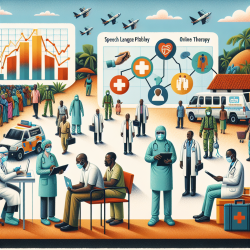Introduction
In the realm of pediatric oncology, the journey doesn't end when treatment concludes. Survivors of childhood and adolescent cancer often face a lifetime of health challenges, known as late effects, due to their previous cancer treatments. Recent research has highlighted the importance of standardized assessments and data collection in improving long-term outcomes for these survivors. In this blog, we'll explore the findings of the study titled "Feasibility of a registry for standardized assessment of long-term and late-onset health events in survivors of childhood and adolescent cancer" and discuss how practitioners can leverage these insights to enhance their care strategies.
The Importance of Standardized Assessments
The study underscores the feasibility of using a standardized registry to collect and analyze data on long-term health events in childhood cancer survivors. By employing the modified Common Terminology Criteria for Adverse Events (CTCAE), researchers were able to systematically grade and document medical conditions across various organ systems. This approach not only facilitates consistent data collection but also provides a comprehensive view of each survivor's health trajectory.
Key Findings
- 94% of the survivors in the study had at least one medical condition, with many experiencing multiple conditions.
- The data entry process was efficient, taking less than 60 minutes for most initial entries and even less time for follow-up visits.
- The registry provides valuable longitudinal data that can be used for clinical care, survivor education, and research.
Implementing Data-Driven Care
For practitioners, integrating a standardized assessment protocol into routine care can significantly enhance the quality of follow-up for childhood cancer survivors. Here are some steps to consider:
- Adopt Standardized Tools: Utilize tools like the modified CTCAE to ensure consistent and comprehensive documentation of health events.
- Create Survivorship Care Plans: Develop personalized care plans that outline potential risks and recommended screenings based on each survivor's treatment history.
- Leverage Data for Education: Use the collected data to educate survivors and their families about potential health risks and the importance of regular follow-up care.
- Collaborate for Research: Engage in collaborative research efforts to build larger datasets, which can lead to more robust insights and improved care strategies.
Encouraging Further Research
The study highlights the potential for registries to revolutionize survivorship care by providing real-time data that can inform clinical decisions and research. Practitioners are encouraged to participate in or initiate further research to explore new treatment modalities and their long-term effects on survivors. By doing so, they can contribute to a growing body of knowledge that ultimately improves outcomes for childhood cancer survivors.
To read the original research paper, please follow this link: Feasibility of a registry for standardized assessment of long-term and late-onset health events in survivors of childhood and adolescent cancer.










